PLoS ONE:间充质干细胞保护移植的胰岛免受炎症作用
2012-07-03 Deepblue 生物谷
近日,来自加拿大阿尔伯塔大学的研究人员发现,人间充质干细胞(MSCs)能够保护胰岛免受促炎性细胞因子的损害,因此在胰岛移植中可能扮演了重要的保护作用。相关研究成果于5月30日在线发表在PLoS ONE上。 1型糖尿病患者为了维持身体健康每天都需要注射胰岛素,则一劳永逸的胰岛移植是一个不错的选择。然而,大多数胰岛移植受体在五年内都失去了胰岛的正常功能。研究发现,炎症是移植失败一个主要的促进因素,而
近日,来自加拿大阿尔伯塔大学的研究人员发现,人间充质干细胞(MSCs)能够保护胰岛免受促炎性细胞因子的损害,因此在胰岛移植中可能扮演了重要的保护作用。相关研究成果于5月30日在线发表在PLoS ONE上。
1型糖尿病患者为了维持身体健康每天都需要注射胰岛素,则一劳永逸的胰岛移植是一个不错的选择。然而,大多数胰岛移植受体在五年内都失去了胰岛的正常功能。研究发现,炎症是移植失败一个主要的促进因素,而抑制促炎细胞因子的活性能够有效的逆转由炎症介导的移植胰岛的功能紊乱。
间充质干细胞拥有众多的免疫调节的特性,为了验证其是否能够保护胰岛免受促炎细胞因子。研究人员Gregory S. Korbutt等人将300份人胰岛细胞与来源于骨髓或者是胰腺的MSCs联合培养。该研究的控制组包括胰岛细胞的单独培养以及与人成纤维细胞的联合培养。在培养基内,研究人员确定了葡萄糖刺激的胰岛素分泌(GSIS)、胰岛细胞内胰岛素的含量、胰岛β细胞的凋亡以及分泌的潜在细胞保护因子。而且,细胞因子破坏人胰岛的GSIS能够通过刺激指数以及胰岛素分泌率被确定。
研究发现,与bMSCs的培养的胰岛细胞,在细胞因子处理后其GSIS得到了保护。但是与成纤维细胞培养的控制组,没有观察到这种保护性作用,这表明在促炎细胞因子存在下,对人胰岛GSIS的保护作用是依赖于MSC的。在存在细胞因子时,研究人员观察到了胰岛β细胞的凋亡,然而,当bMSCs与胰岛细胞联合培养时却阻止了β细胞的凋亡。后续研究发现,肝细胞生长因子(HGF)以及基质金属蛋白酶2/9是其分泌的潜在的细胞保护性因子。
为此,Gregory S. Korbutt表示,该研究表明了MSCs能够促进细胞生存并降低炎症,很可能利于胰岛的移植。

doi: 10.1371/journal.pone.0038189
PMC:
PMID:
Human Mesenchymal Stem Cells Protect Human Islets from Pro-Inflammatory Cytokines
Telford Y. Yeung, Karen L. Seeberger, Tatsuya Kin, Adetola Adesida, Nadr Jomha, A. M. James Shapiro, Gregory S. Korbutt.
Transplantation of human islets is an attractive alternative to daily insulin injections for patients with type 1 diabetes. However, the majority of islet recipients lose graft function within five years. Inflammation is a primary contributor to graft loss, and inhibiting pro-inflammatory cytokine activity can reverse inflammation mediated dysfunction of islet grafts.As mesenchymal stem cells (MSCs) possess numerous immunoregulatory properties, we hypothesized that MSCs could protect human islets from pro-inflammatory cytokines. Five hundred human islets were co-cultured with 0.5 or 1.0×106 human MSCs derived from bone marrow or pancreas for 24 hours followed by 48 hour exposure to interferon-γ, tumor necrosis factor-α and interleukin 1β. Controls include islets cultured alone (± cytokines) and with human dermal fibroblasts (± cytokines).For all conditions, glucose stimulated insulin secretion (GSIS), total islet cellular insulin content, islet β cell apoptosis, and potential cytoprotective factors secreted in the culture media were determined. Cytokine exposure disrupted human islet GSIS based on stimulation index and percentage insulin secretion.Conversely, culture with 1.0×106 bMSCs preserved GSIS from cytokine treated islets. Protective effects were not observed with fibroblasts, indicating that preservation of human islet GSIS after exposure to pro-inflammatory cytokines is MSC dependent. Islet β cell apoptosis was observed in the presence of cytokines; however, culture of bMSCs with islets prevented β cell apoptosis after cytokine treatment.Hepatocyte growth factor (HGF) as well as matrix metalloproteinases 2 and 9 were also identified as putative secreted cytoprotective factors; however, other secreted factors likely play a role in protection. This study, therefore, demonstrates that MSCs may be beneficial for islet engraftment by promoting cell survival and reduced inflammation.
本网站所有内容来源注明为“梅斯医学”或“MedSci原创”的文字、图片和音视频资料,版权均属于梅斯医学所有。非经授权,任何媒体、网站或个人不得转载,授权转载时须注明来源为“梅斯医学”。其它来源的文章系转载文章,或“梅斯号”自媒体发布的文章,仅系出于传递更多信息之目的,本站仅负责审核内容合规,其内容不代表本站立场,本站不负责内容的准确性和版权。如果存在侵权、或不希望被转载的媒体或个人可与我们联系,我们将立即进行删除处理。
在此留言
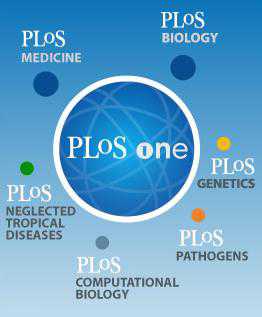



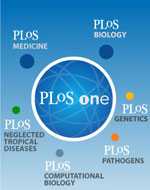
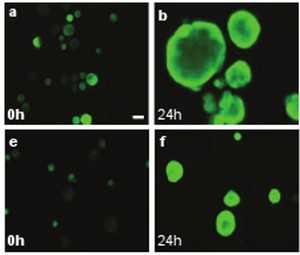
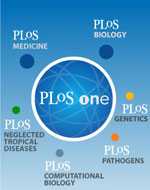
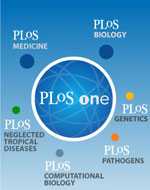
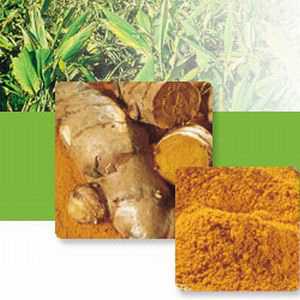
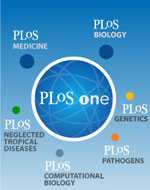




#间充质干细#
54
#胰岛#
63
#Plos one#
61